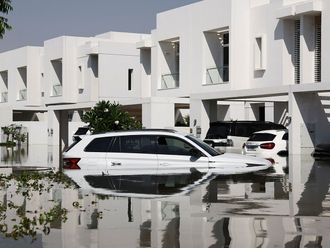The second quarter is almost over and many people are preparing for their upcoming summer breaks. Except for more institutional funds searching the market for good buys, nothing much has changed since early this year.
Most of the buyers are still cash rich investors or institutional funds — both very price conscious, risk averse and will only invest in completed or near completed properties.
Unlike two years ago where the spotlight was on the GCC for property investment due to high capital growth rates, the spotlight has since shifted to elsewhere in the world. The UK and the US have become more popular now due to their attractive prices (partly due to the weakening of currencies and falling prices)
Also, properties in Asia — especially in Singapore and Hong Kong — have seen good capital growth after a very short and sharp fall towards the end of 2008. Even Australia, benefiting from its commodities based export economy and low mortgage rates, has seen capital growth in the past two quarters. Most of these countries have managed to revive their local property markets due to a combination of low interest rates and government economic policies.
To bring the spotlight back to the UAE, the government will have to implement new regulations to make the market more transparent. There has been talk of new laws being passed for the Abu Dhabi property market since the start of this year, but none have been passed so far. Laws governing escrow account, strata title and registration will help the property market mature and will hopefully be passed soon.
As mentioned in some previous articles, developers have to keep management and service charges, district cooling charges and other miscellaneous charges at the lowest level possible. The government can also help by reducing all kinds of registration fees in the short term to help make investors' yield more attractive than in other major property markets. With a projection of further drops in rental prices, this will remain a very important factor for prospective investors when deciding whether to invest in the market or not.
On the mortgage front, the cost of mortgage repayments per month compared with renting the same property is edging closer and is much needed to reinvigorate the property market. With a more structured and reputable service being provided by valuation firms and a new panel of valuers being appointed by some banks, the security of loans and affordability of finance is reassuring.
These rates have dropped between 200 and 300 basis points (approximately 30 per cent less than previous rates) while loan to value (LTV) ratios still remain cautious (up to 85 per cent in most cases).
Improved mortgage conditions
We have observed that more banks are beginning to lower mortgage rates through special tie-ups with developers and so on. At the time of writing this article, the impact of this has not fully materialised. Hopefully, improved mortgage conditions will lead to higher transaction volumes.
Buyers are still only interested in completed projects or nearly completed projects that are not more than three months away from completion. We have therefore begun to see an increase in enquiries for property located in Marina Heights at Abu Dhabi's Al Reem Island development.
The most important thing now is perhaps not to focus on the real estate sector but rather on how to achieve growth in the economy. The government has to look at policies that will help companies expand.
Things such as making the law more lenient for the setting up of companies, reducing set-up costs and government fees to make the UAE more competitive globally, as well as helping companies gain access to cheap financing so that they can look at expanding in this tough time.
Only by helping companies expand and create more jobs in the local economy can there be an increase in demand for housing and commercial space, which will help absorb the new supply entering the market.
With Abu Dhabi's financial muscle and its meticulously planned economy and urban diversification plans, we continue to view the capital as a good long-term investment location.
The writer is director of valuations and research, Chesterton International.












